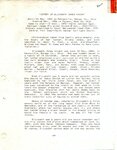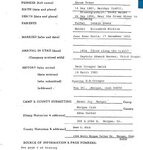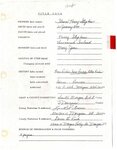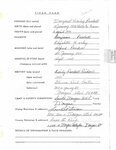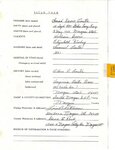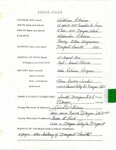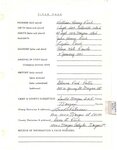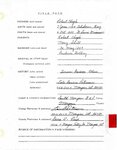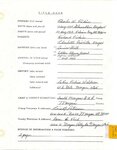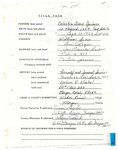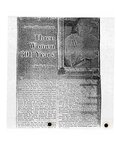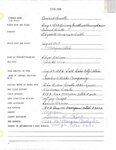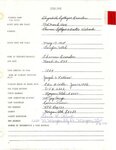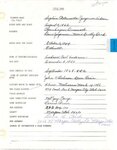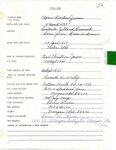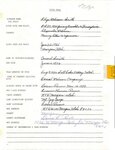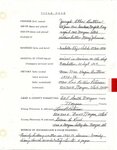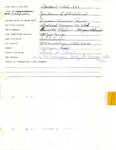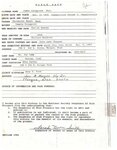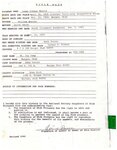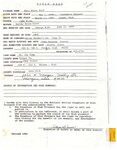| Title |
015_Pioneer Histories Compiled by Morgan Company (DUP Book 12) |
| Contributors |
Daughters of Utah Pioneers, Morgan County |
| Description |
In the early part of the 1900s Daughters of Utah Pioneers historians interviewed pioneers and their children and wrote or gathered the histories. |
| Biographical/Historical Note |
This book contains 24 of the pioneer histories given in Morgan, Utah meetings of the Daughters of Utah Pioneers during the 1980s. Historian Dena C. Rich compiled the histories in the loose leaf and submitted it to the Morgan County Pioneer Memorial Building as Museum Item No. 1986-1. |
| Subject |
Morgan County (Utah)--History; Mormon pioneers; Mormons--Utah |
| Digital Publisher |
Stewart Library, Weber State University, Ogden, Utah, USA |
| Date Original |
1986 |
| Date |
1986 |
| Date Digital |
2017 |
| Temporal Coverage |
1840; 1841; 1842; 1843; 1844; 1845; 1846; 1847; 1848; 1849; 1850; 1851; 1852; 1853; 1854; 1855; 1856; 1857; 1858; 1859; 1860; 1861; 1862; 1863; 1864; 1865; 1866; 1867; 1868; 1869; 1870; 1871; 1872; 1873; 1874; 1875; 1876; 1877; 1878; 1879; 1880; 1881; 1882; 1883; 1884; 1885; 1886; 1887; 1888; 1889; 1890; 1891; 1892; 1893; 1894; 1895; 1896; 1897; 1898; 1899; 1900 |
| Item Size |
10x11.75 inches |
| Medium |
histories |
| Item Description |
3-ring binder. This book consists of 76 pages containing histories and historic documents, handwritten or typewritten on standard rectangle sheets. |
| Spatial Coverage |
Morgan County, Utah, United States, http://sws.geonames.org/5778525/ |
| Type |
Text |
| Conversion Specifications |
JPG images were scanned with a Kodak PS50 scanner. Handwritten transcription by Morgan County Daughters of Utah Pioneers; typed transcription by Minoushka Ruiz using ABBYY Fine Reader. PDF files were created for general use. |
| Language |
eng |
| Rights |
Materials may be used for non-profit and educational purposes; please credit Morgan County Daughters of Utah Pioneers, Morgan, Utah. |
| Source |
Daughters of Utah Pioneers, Morgan County |
| Format |
application/pdf |
| ARK |
ark:/87278/s6r57hrx |
| Setname |
wsu_mdupc |
| ID |
47853 |
| Reference URL |
https://digital.weber.edu/ark:/87278/s6r57hrx |


